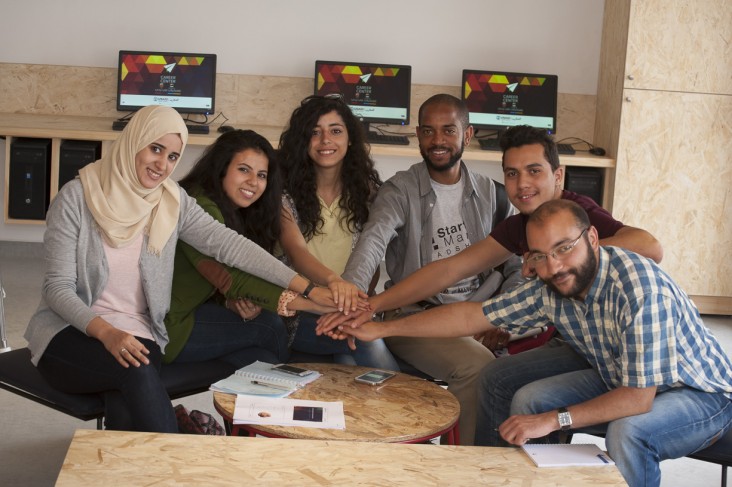Speeches Shim

USAID is fostering systemic changes to enable the Government of Morocco and the expanding private sector to secure new and lasting entrants to the labor market that will help sustain Morocco’s dynamic economic growth and provide a brighter future for the country’s burgeoning youth population.Through our programming, USAID and its partners expect to see lasting job and economic opportunities for Moroccan youth, particularly for graduates of public universities and vocational training centers. USAID is equipping high quality and dynamic pilot Career Centers in a total of six university, OFPPT, and/or Ministry locations. USAID is employing work readiness skills that can be institutionalized into national curricula to assist graduates with transitioning to productive jobs, while improving retention rates. Furthermore, small and medium enterprises will have new financing opportunities emerging from Moroccan investment portfolio companies, where positive returns will allow continued investing and lending. In addition, USAID is engaging with the private sector to provide specialized workforce development partnerships.
Bridging the Gap to Employment
USAID's Career Center program increases access to employability services for university and vocational school students and recent graduates. Operating in three focus regions - Marrakesh, Casablanca and Tangier – Career Center helps bridge the gap between the end of education and beginning of employment by teaching work-readiness skills, including curricula developed in collaboration with private companies, in model career center locations and on-line. Official launches began in 2016 with the inauguration of physical career center spaces in focal regions. Youth can also receive these services online at www.careercenter.ma.
Financing Small Firms with Growth Potential
USAID has provided a 50 percent portable loan guarantee of up to $7 million to FrioPuerto Tangier to secure local lending for the construction of Tanger-Med Port's first cold storage facility. A legacy project for USAID's substantial involvement and prior commitment to Moroccan agricultural growth, this activity attempts to address a market gap for exports. Studies demonstrate that cold storage facilities would yield significant impacts for high-value agricultural exports such as wheat, barley, olives and citrus fruits; and the FrioPuerto project alone could create 80 permanent and up to 300 additional, indirect jobs in agricultural value chains in the northern region of Morocco.
A Public-Private Partnership Highlight
The Volvo Group intends to grow revenue in Africa by 25 percent and has launched a Corporate and Social Responsibility agenda to support this projected growth in a sustainable fashion. A key obstacle is the severe shortage of trained drivers, technicians and operators. Therefore, USAID has created a Global Development Alliance in Morocco in partnership with Volvo, United Nations Industrial Development Organization (UNIDO), the OCP Foundation (Office Chérifien des Phosphates), and the Moroccan government. Located within an existing Moroccan vocational training center in Settat, the partnership has a specialized training academy that focuses on the maintenance of Volvo industrial and commercial equipment. The project will provide 450 Moroccan, Ivorian and Senegalese students the skills to meet the employment demands at Volvo and other companies operating in this sector. USAID is planning to invest $2.6 million on this effort, whose combined value is $7.4 million. In addition, USAID/Morocco's Economic Growth team is excited to work with any private sector company whose interests involve promoting skills and providing youth with employment opportunities, while achieving corporate profitability and social-responsibility goals.
Water Management and Climate Resilience
Climate impacts have affected countries in the Middle East and North Africa (MENA) region in various ways, but most--if not all--have experienced water shortages due to drought. Coastal infrastructure, housing, and livelihoods will all be affected by reduced precipitation, rising sea levels, and drought. These stressors have already contributed to serious humanitarian issues, including mass migrations and emergency food security conditions in the region.
USAID has provided support to Morocco’s water sector for over twenty years. In the late 1990s, USAID improved water resources management in the Souss-Massa River Basin, establishing a model of integrated water management that is still in use today. USAID’s work in Morocco has helped mitigate climate risks by introducing new technologies and building local capacity. As Morocco’s interest in new technologies and renewable energy grows, USAID support continues through a series of new projects, including H2O Maghreb, which aims to establish a state-of-the-art training center to deliver market-driven training programs in water management practices to Moroccan youth and water management professionals.


Comment
Make a general inquiry or suggest an improvement.